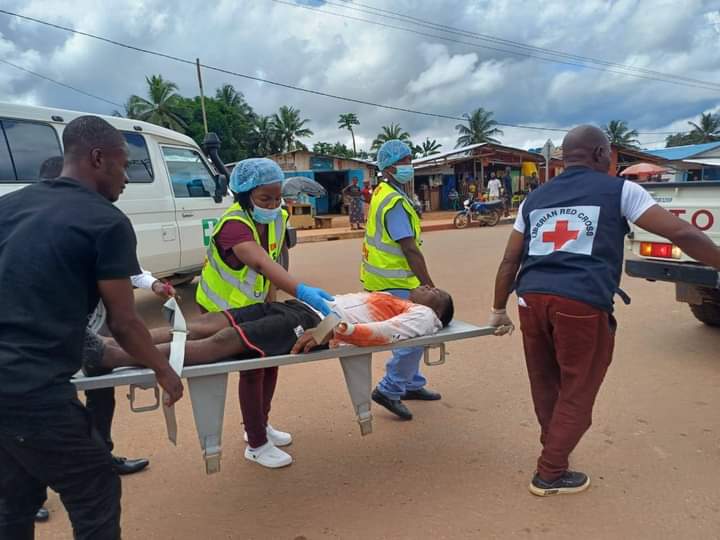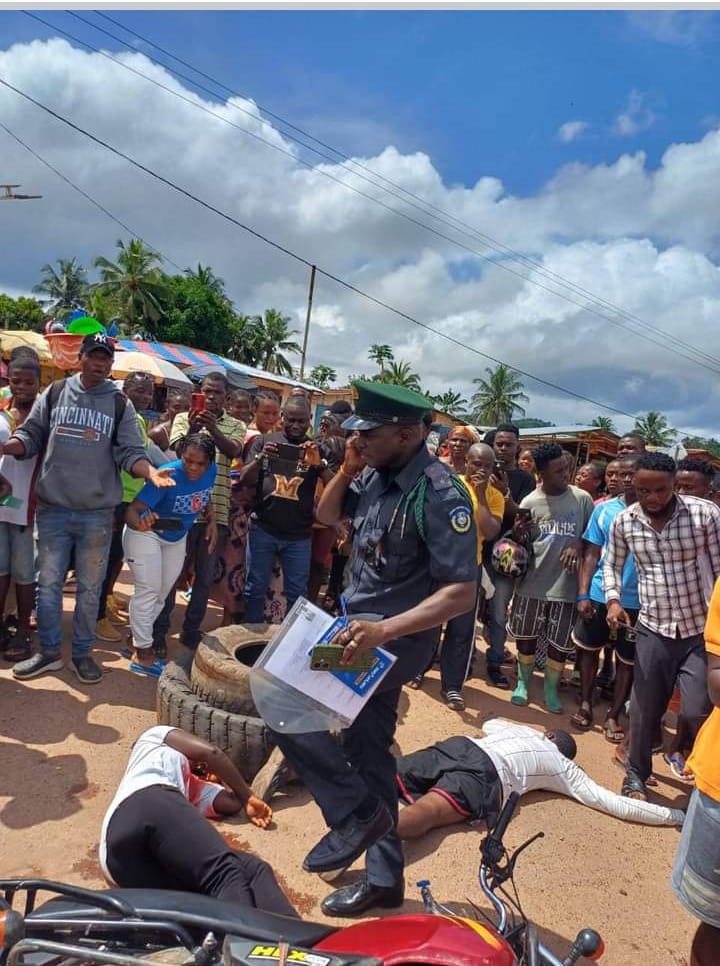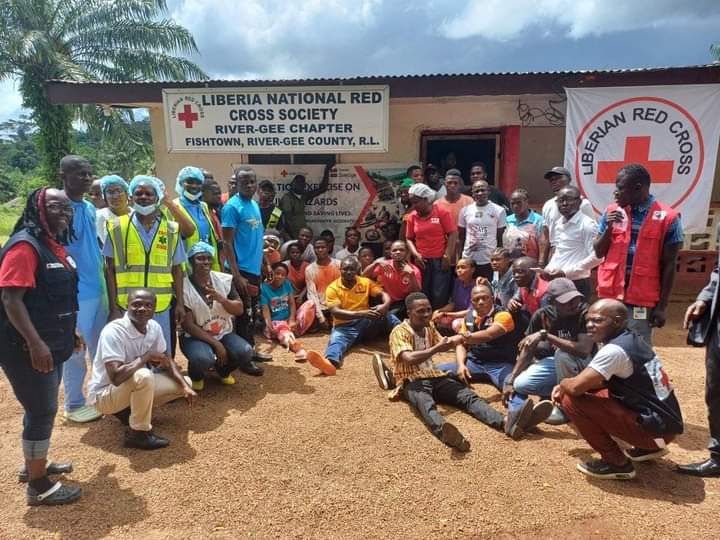By Ben TC Brooks
RIVER GEE – Participants drawn from three southeastern counties, River Gee, Sinoe, and Grand Kru gathered recently in Fish Town, River Gee County for a two-day intensive road traffic accident simulation exercise organized by the Liberia National Red Cross Society (LNRCS).
A simulation exercise is a fully simulated, interactive exercise that tests an organization’s or entity’s capacity to respond to a simulated emergency, disaster, or crisis situation. These exercises are designed to assess preparedness, response, and recovery mechanisms, allowing participants to practice their roles and functions in a safe and controlled environment.
The Fish Town training exercise brought together Local government employees including public and private health workers, law enforcement officers, commercial motorcyclists, media practitioners, members of the business community, and Red Cross volunteers, among others.

The simulation exercise held under the theme: “Building Resilience and Saving Lives,” with a focus on strengthening local response to road traffic accidents, aimed to encourage and engage in quick response to life-saving simulation, first aid, and community support in the event of road traffic accident, according to Red Cross authorities.
Speaking at the training exercise, Liberia National Red Cross LNRCS Regional Coordinator, Marian Y. Sokpagba, disclosed that the exercise is part of the Red Cross’ multi-hazard simulation plan within a three-year Green Inclusive and Resilient Liberian Communities (GIRL) project, with support from the Embassy of Sweden through the Swedish Red Cross.
Sokpagba added that the GIRL project is actively enhancing community resilience, promoting climate change adaptation, and building local capacities in health, and disaster risk reduction in the three southeastern counties, River Gee, Sinoe, and Grand Kru.
“Safety in road traffic is important and must be supported by everyone to reduce accidents,” said Sokpagba, adding; “the act of us responding quickly and effectively to accidents will significantly reduce the impact of such events and for us at the LNRCS, we take this seriously to emergency response, in providing first aid and supporting accident victims.”
Meanwhile, participants at the two-day event thanked the LNRCS for the first aid knowledge imparted to them, placing specific emphasis on the training component regarding response to traffic accidents.

The participants speaking through a representative, promised to make use of the training, stating that they consider the simulation exercise training as a call to join road traffic safety awareness campaigns in their various communities.
The over 50 participants practically learned the skills of managing emergency cases of accidents and providing life-saving assistance.
Edited by Olando Testimony Zeongar




1 Comment
Đội ngũ quản trị của đăng ký 66b luôn giám sát hệ thống một cách liên tục. Mỗi giao dịch, từ nạp tiền đến rút tiền, đều được kiểm tra cẩn thận để đảm bảo an toàn tuyệt đối. Nhờ vào các biện pháp bảo mật tiên tiến này, nhà cái đã xây dựng được lòng tin từ hàng triệu người chơi trên toàn thế giới. TONY12-16